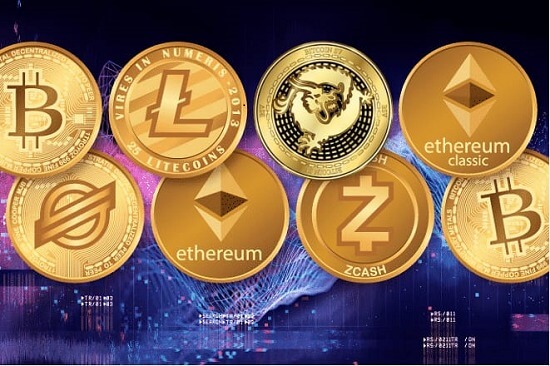Digital Economy
A digital economy is a form of economy in which the economic activities are performed by using various digital computing technologies of hardware and software. It is a new form of economy. The digital economy is often perceived as the running and operating business over the internet and World Wide Web-based markets. It is also known as New Economy, Internet Economy, or Web Economy.

Concepts of Digital Economy
According to Thomas Mesenbourg, an American Statistician, there are three main concepts of the digital economy which are as follows:
- E-business Infrastructure
The infrastructure of the digital economy includes hardware devices, software, telecom, networks, human resource, etc.
- E-business
This means how the business is conducted over the internet with the help of e-business infrastructure or can say via computer-mediated networks.
- E-commerce
Commerce refers to the transfer or trade of goods and services. Hence, e-commerce means the transfer of goods and services over the internet in the digital market. For example, goods such as clothes, groceries, etc. can be sold online, and services such as education, medical consultation, etc. are also available through the medium of e-commerce.
Features of the Digital Economy
A significant change can be noticed in the connections between people and businesses over the past decade. Now, enterprises have established their network of suppliers, customers, and internal systems with the increasing popularity of the internet and social media. This is creating endless opportunities in the business environment and rising global trade. This digitalization into the business world is giving birth to the digital economy. Such an economy has various impressive characteristics. Some of them are given below:
- Digitized and Tracked
The digital economy promotes the use of analog objects which generates digital signals that can be measured, tracked, and analyzed. This helps in improving decision-making skills. Other than this, it is also beneficial in improving the forecast accuracy and increasing the profitability of the company. Digitization also lowers the cost of introducing modern technology in the business and supports operators to invest more processing into the business.
- Connected
The digital economy links assets, suppliers, workers, stakeholders, customers, etc. via a wireless communication system that allows everybody to make a data-driven decision. This helps in increasing safety, efficiency, and visibility across the enterprise and in the market. By having a proper link with each other, the company can avoid unexpected failures, enhance the integrity of assets, and increase assets uptime.
- Shared
The operation of the digital economy works on the principle of sharing. Companies can buy only what they need and pay as they go thanks to the digital economy. This form of buying behavior lowers inventory costs and buying as a service allows businesses to pay only for the time and value they receive.
- Personalized
Customer penalization is another characteristic of the digital economy. Personalization means the digital economy provides tailored products to the customers so that they can make them adjust as per their needs and give the availability of products and services of their favorite brands at their home.
- Direct
With the arrival of the digital economy, the company can eliminate the unnecessary middlemen, intermediaries, or channels so that a more direct relationship can be established between buyer and seller. This reduces the cost for the producer and price for the customers and also makes the process easier and simpler by eliminating the barrier which increases the number of customers and producers in the market. One of the best examples of direct operations is remote service monitoring.
What are Digital Platforms?
A computerized stage administrator or digital platform operator is an entity or person offering an internet communication service to the public based on computer calculations used to classify content, products, or services. They are offered through online mode, or the association of a few parties for the deal of merchandise, the provision of a service, or the trade or sharing of content, products, and services.

Types of Digital Platforms
- Social Media Platforms
They include platforms like Facebook, Instagram, Snapchat, Twitter, LinkedIn, etc.
- Knowledge Platforms
They include platforms like StackOverflow, Quora, Yahoo! Answers, Byju.com, Udemy, etc.
- Media Sharing Platforms
They include platforms like YouTube, Spotify, Vimeo, Google Photos, etc.
- Service-Oriented Platforms
They include platforms like Uber, Urbanclap, Ola, MakeMyTrip, Airbnb, GrubHub, etc.
Advantages of Digital Economy
- Promotes Use of the Internet
As we can see, the internet is a very important part of today's life. Many works can be done via the internet which promotes digitalization. This massive growth in the use of the internet has increased the demand for things related to hardware, technological research, services, software, digital communication, etc. So, the digital economy and web-based businesses help in increasing the use of the internet and also provide services in remote areas.
- Rise in E-commerce
The digital economy also helps in bringing a boom in the E-commerce sector. As seen over the last decade, the businesses that adopted and adapted the use of the internet, spread their services over there and embraced the online business have flourished and are competing much better in the market. The introduction of the digital economy is not just promoting direct selling over the internet, but also supporting the services like, buying, distributing, marketing, selling, advertising, etc. This all has become easier now.
- Digital Goods and Services
The days of movie DVDs and music CDs or LPs are long gone. These items are now available to us in a digital format. There is no longer any need for tangible goods. The same can be said for services such as banking and insurance. You don't need to go to the bank if you can complete all of your transactions online. In this digital economy, several commodities and services have been digitized.
- Transparency
In the digital economy, the majority of transactions and payments take place online. Cash transactions are becoming increasingly uncommon. This aids in the reduction of black money and corruption in the market, as well as the transparency of the economy. In reality, the government pushed for online transactions during demonetization in order to strengthen the web economy.
Drawbacks of the Digital Economy
- Decrease in Employment Opportunities
Digitalization in the economy can cause a decrease or loss in employment opportunities in the country. With more dependability on technology, the use of human resources reduces due to which many people are losing their jobs in various fields. An example of this job loss can be seen in the banking sector.
- Lack of Experts
It is not easy to be digital in a country. This is because the digital economy includes complex processes and technical knowledge and skills. The creation and maintenance of digital platforms necessitate the use of trained professionals and specialists. In rural and semi-rural locations, these are hard to come by. So, for a developing country like India, the digital economy is a huge task and a continuous process.
- Heavy Investment
To establish a country's digital economy, it is necessary to have a solid infrastructure, developed platforms, high-speed internet, robust mobile networks, and telecommunications. All of these activities require a significant financial and time investment. Again, in a developing country, infrastructure and network development are a long, arduous, and expensive process.
Cryptocurrency
A cryptocurrency is a type of digital or virtual currency which is secured by cryptography. This system makes it impossible to use the same currency twice. Most cryptocurrencies are based on the decentralized network of blockchain technology. One of the biggest limitations of these digital currencies is that they are not issued and regulated by the central authority, which makes them highly insecure and increases the possibility of fraud.

There are various types of crypto which include the following:
- Coins and Altcoins
- Tokens
- Bitcoin (BTC)
- Ether (ETH)
- Tether (USDT)
- Solana (SOL)
- XRP, and others.
|



 For Videos Join Our Youtube Channel: Join Now
For Videos Join Our Youtube Channel: Join Now










